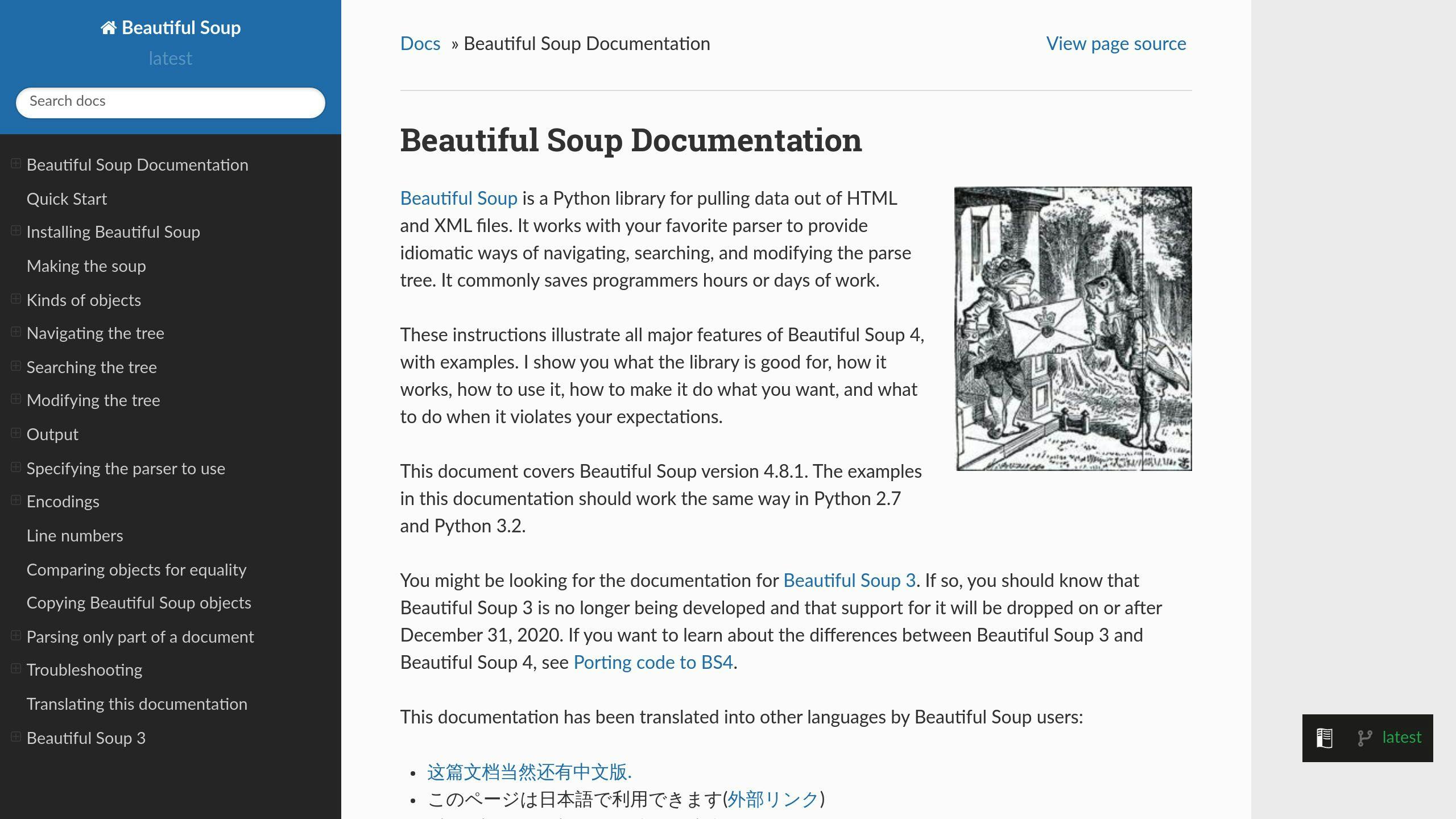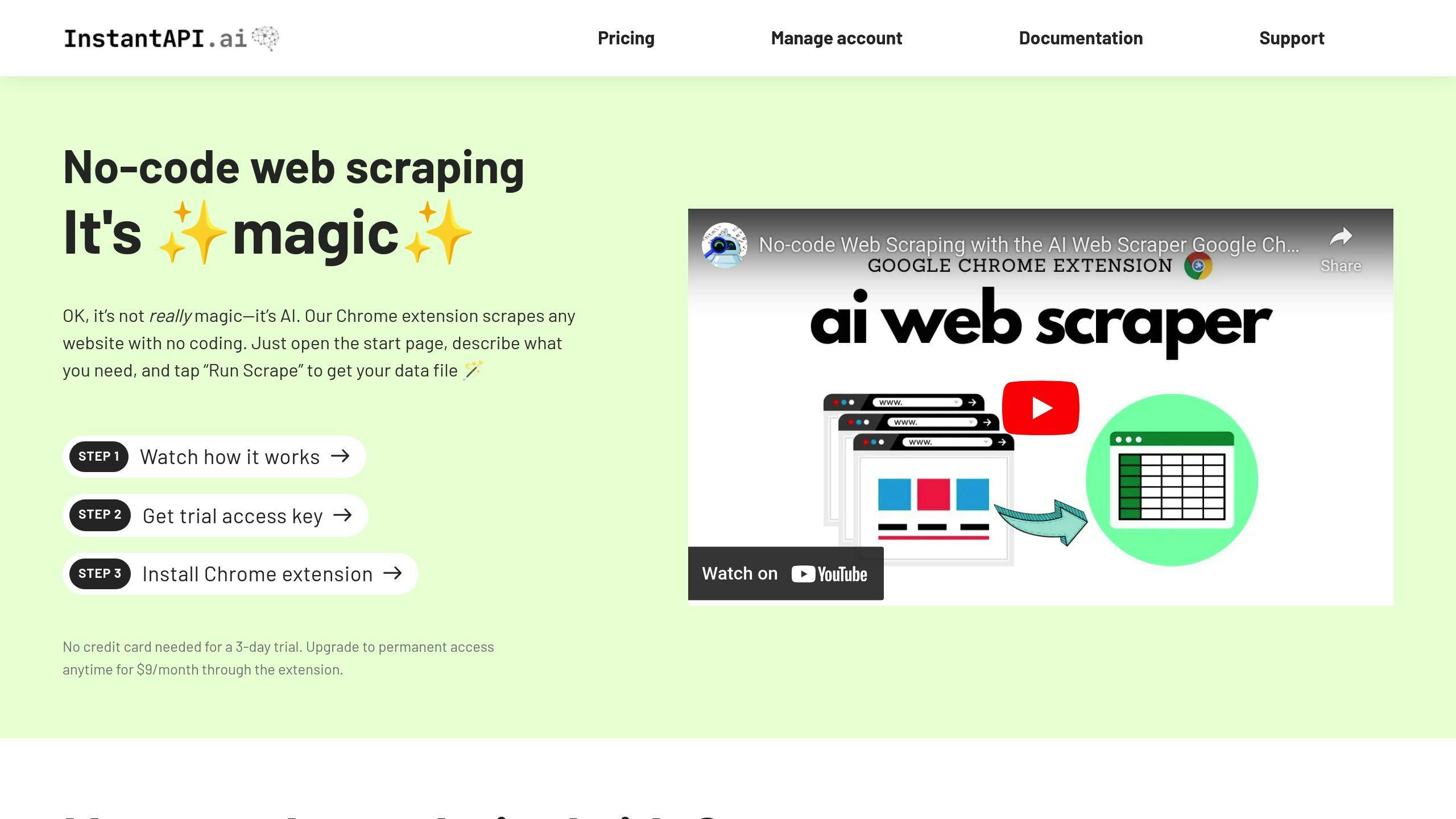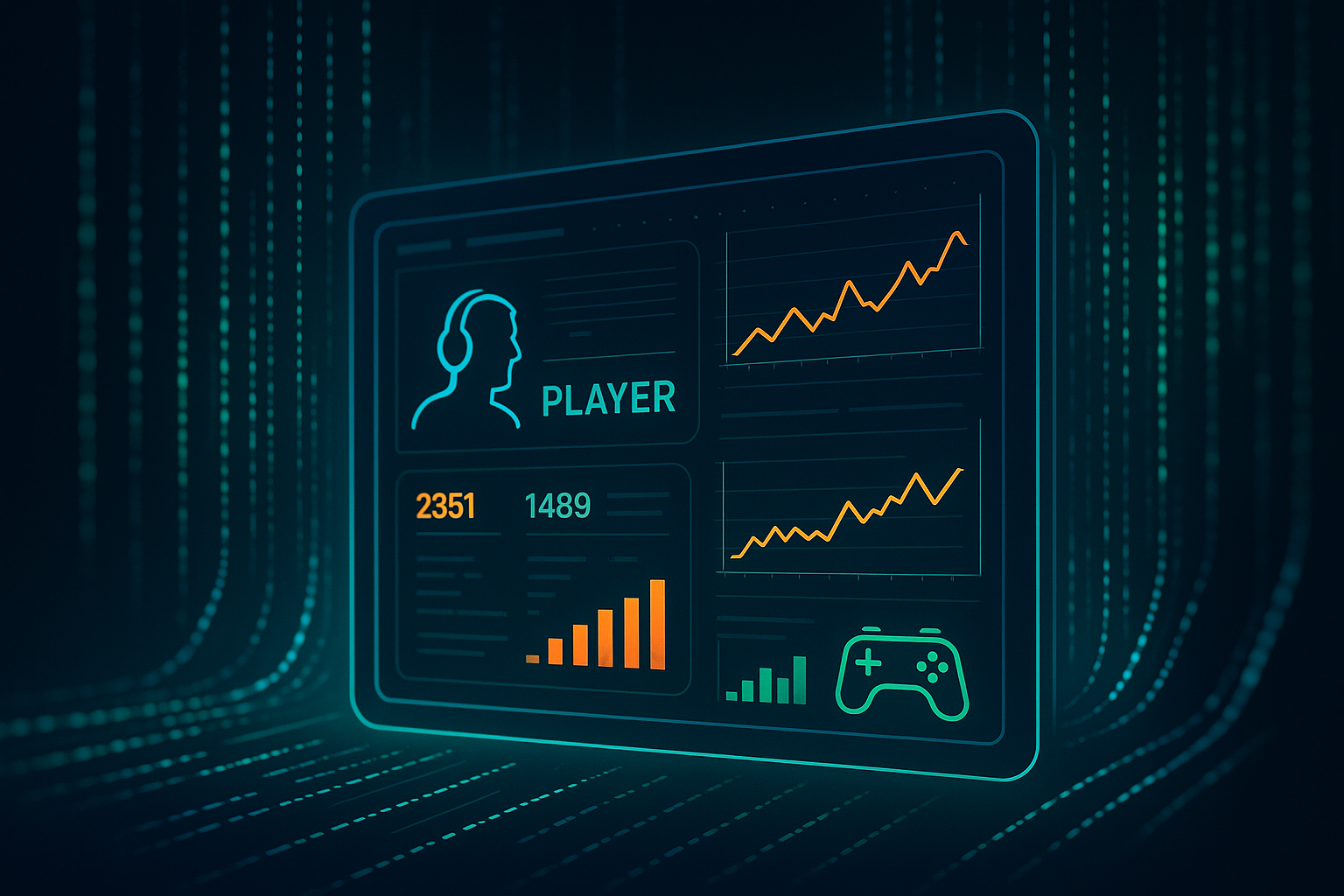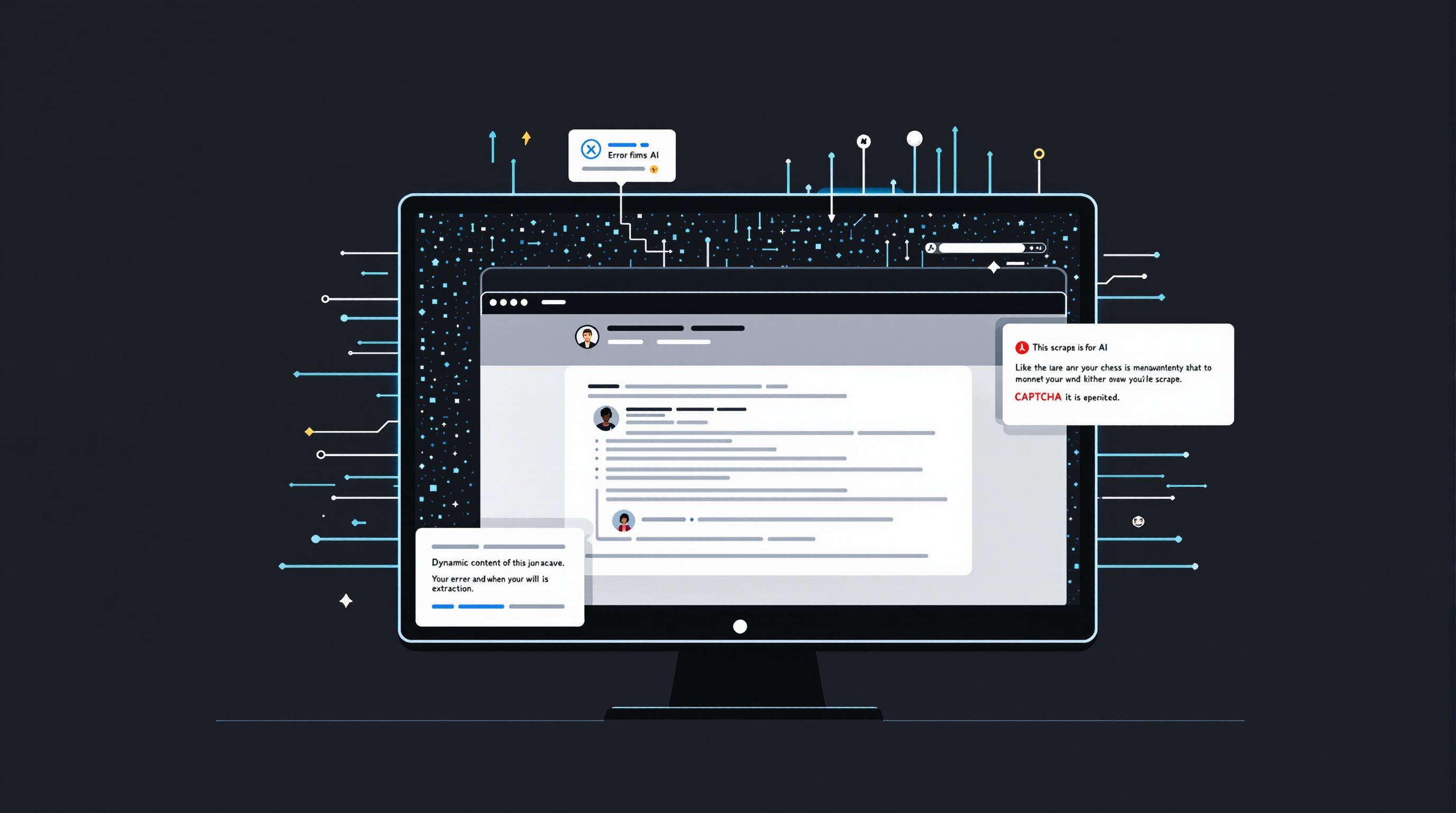Web scraping is the process of automatically gathering data from websites, and it’s a vital skill in today’s data-driven world. Whether you want to track competitor prices, analyze market trends, or automate data collection, mastering web scraping opens up many career opportunities. Here’s what you need to know:
- Key Skills: Learn Python (with libraries like BeautifulSoup and Scrapy), understand web technologies (HTML, CSS, JavaScript), and manage large datasets effectively.
- Tools: Use APIs for structured data or tools like Selenium for dynamic websites.
- Career Paths: Roles include Web Scraping Specialists, Data Analysts, and Automation Engineers.
- Ethics and Laws: Always scrape responsibly, respect website terms of service, and comply with data privacy laws like GDPR.
Start small by building projects like price trackers, and focus on ethical practices to avoid legal issues. With consistent learning, you can turn web scraping into a rewarding career in industries like e-commerce, finance, and real estate.
Web Scraping with Python - Beautiful Soup Crash Course
Technical Skills You Need for Web Scraping
Web scraping combines programming know-how with technical expertise to extract and process data efficiently. Here’s a breakdown of the core skills you'll need.
Programming Languages for Web Scraping
Python stands out as the top choice for web scraping. Its easy-to-learn syntax, extensive libraries, and strong community support make it ideal for both beginners and experts. Libraries like BeautifulSoup and Scrapy (discussed later) make tasks like sending HTTP requests and parsing HTML straightforward. While JavaScript is great for handling dynamic content and Ruby has built-in parsing tools, Python remains the most popular option in the field.
Beyond programming, understanding web technologies like HTML and JavaScript is crucial for effectively navigating and scraping modern websites.
Understanding HTML, CSS, and JavaScript
Familiarity with web technologies is essential for scraping data from websites. HTML helps you identify a page's structure, CSS selectors allow you to pinpoint specific elements, and JavaScript is vital for working with sites that load content dynamically.
When examining web pages, focus on these tasks:
- Use browser developer tools to inspect the HTML structure.
- Find unique CSS selectors to accurately target elements.
- Navigate through complex DOM structures to locate the data you need.
"Web scraping should always be performed ethically to respect the scraped site's terms of service and avoid disrupting its servers." - Adomas Sulcas, Oxylabs
Managing Large Datasets
Extracting and working with large datasets requires careful organization and attention to detail. Essential skills include:
- Cleaning and validating data by removing duplicates and fixing errors.
- Storing data in structured formats like CSV or JSON for easy access.
- Using tools like pandas in Python to simplify data transformation and preparation.
With tools like pandas, you can efficiently turn raw scraped data into clean, usable information for analysis.
Tools and Platforms for Web Scraping
Web scraping tools make data extraction simpler and more efficient. Below are some of the key platforms and technologies that support modern workflows.
Using APIs for Data Extraction
APIs offer a structured way to extract data, making them a preferred option over traditional scraping methods. Here’s why APIs stand out:
- Provide direct access to structured data, eliminating the need for HTML parsing.
- Lower risk of being blocked by websites.
- Enable faster, more efficient data retrieval.
- Offer more stable and easier-to-maintain solutions.
APIs are especially useful when platforms provide official data access, ensuring consistency and reducing legal risks associated with scraping.
Popular Tools: BeautifulSoup, Scrapy, and Selenium

When APIs aren’t an option, these tools are excellent alternatives:
| Tool | Best For | Key Strengths |
|---|---|---|
| BeautifulSoup | Parsing static websites, HTML/XML | Easy to use, great for beginners |
| Scrapy | Large-scale projects, distributed tasks | High performance, rich features |
| Selenium | Dynamic websites with JavaScript | Automates browsers, multi-browser support |
While these tools are powerful, APIs often offer a more efficient solution. Selenium, for example, is highly versatile but can be slower due to its reliance on browser automation.
InstantAPI.ai: A Smarter Data Scraping Tool

InstantAPI.ai is an AI-driven tool that simplifies data scraping with advanced features such as:
- AI-powered extraction that doesn’t require xPath knowledge.
- Built-in JavaScript rendering for handling dynamic content.
- Premium proxy infrastructure to avoid IP bans.
- Automatic updates to prevent scraper failures.
"Web scraping should always be performed ethically to respect the scraped site's terms of service and avoid disrupting its servers." - Adomas Sulcas, Oxylabs
Learning these tools not only makes data extraction easier but also opens up exciting career paths in web scraping.
sbb-itb-f2fbbd7
Applications and Career Paths in Web Scraping
How Web Scraping Is Used in Industries
Web scraping plays a key role in how various industries collect and analyze data. In e-commerce, it's used for tasks like tracking competitor prices, analyzing customer reviews, and adjusting pricing strategies. The financial sector relies on web scraping to pull data from sources like financial news, company reports, and social media to gauge market trends and make investment decisions. Real estate companies use it to study property listings and market dynamics, while travel businesses gather fare and availability data to fine-tune pricing.
As more businesses turn to web scraping to stay ahead, the need for skilled professionals in this area is growing.
Steps to Build a Career in Web Scraping
If you're looking to break into web scraping, you'll need a mix of technical know-how and a solid understanding of ethical practices. Here's how you can get started:
- Work on Real Projects: Build practical tools like price trackers or social media sentiment analyzers. These projects will not only sharpen your skills but also show how web scraping solves business problems.
- Master the Technical Basics: Learn Python and its web scraping libraries, and get comfortable with web technologies like HTML, CSS, and JavaScript. Make sure you know how to handle both static and dynamic web content.
- Showcase Your Skills: Use platforms like GitHub to collaborate and share your work. Earning certifications in areas like Python programming or data analysis can also help you stand out.
- Follow Ethical Guidelines: Stay informed about data protection laws and website terms of service. Understanding these rules is essential for maintaining trust and ensuring your work is compliant.
Ethics and Legal Guidelines for Web Scraping
Following Ethical Practices in Web Scraping
Ethical web scraping is about respecting boundaries and collecting data responsibly. It starts with honoring website terms of service and using methods that don’t harm servers. For instance, rate limiting - controlling how often requests are sent - helps avoid overloading servers. Tools like Scrapy come with built-in features to manage this.
Keeping a detailed record of your scraping activities is another important step. This documentation ensures transparency, helps teams stay aligned with ethical standards, and provides proof of responsible practices if questions arise.
But ethics alone isn’t enough - understanding the legal side of web scraping is just as important.
Legal Rules and Data Protection Laws
Web scraping laws, influenced by regulations like GDPR and CCPA, come with hefty fines for violations - up to €20 million in some cases. To stay on the right side of these rules, focus on protecting data privacy. This can include anonymizing and encrypting sensitive information, especially when dealing with personal data.
The 2017 LinkedIn vs. hiQ Labs case serves as a cautionary tale. LinkedIn sued hiQ Labs for scraping user data without permission, showing how violating terms or data laws can lead to serious legal trouble.
Here’s a quick overview of key legal requirements and the risks involved:
| Legal Requirement | Compliance Requirements and Risks |
|---|---|
| GDPR Compliance | Requires explicit consent for collecting personal data; non-compliance can lead to fines of up to €20M or 4% of global revenue |
| Copyright Laws | Content use requires permission; violations can result in lawsuits and financial damages |
| Terms of Service | Ignoring website policies can lead to account bans or legal action |
| Data Privacy | Failure to secure data can result in penalties and harm to your reputation |
When working with dynamic content, ensure your browser automation tools are set up to respect rate limits. Overly aggressive scraping can trigger security measures or disrupt website performance, creating unnecessary risks.
Starting Your Journey in Web Scraping
Web scraping is a sought-after skill that can lead to exciting opportunities in today’s data-focused industries. By combining technical know-how with ethical practices, you can carve out a fulfilling career in this ever-evolving field.
The world of web scraping changes quickly. Websites frequently update their structures, and new anti-scraping measures are introduced all the time. Experts suggest dedicating 2-3 hours a week to keeping your skills sharp with resources like GeeksforGeeks, Bright Data, and Oxylabs.
Ethics are key when it comes to web scraping. This means respecting website policies, using rate-limiting to avoid overloading servers, and complying with data protection laws. As Adomas Sulcas from Oxylabs explains:
"Web scraping should always be performed ethically to respect the scraped site's terms of service and avoid disrupting its servers."
Once you’ve built a solid ethical foundation, focus on growing your technical skills. Follow a structured learning plan like this:
| Stage | Focus Areas | Key Tools |
|---|---|---|
| Beginner | Python and HTML/CSS basics | BeautifulSoup |
| Intermediate | JavaScript and working with APIs | Scrapy, Selenium |
| Advanced | Large-scale scraping | Distributed systems |
Use these tools to tackle real-world challenges. Start with small projects to get the hang of it, then gradually move on to more complex tasks. Industries like e-commerce, finance, and AI development rely heavily on web scraping, making your skills highly valuable.
With commitment, ongoing learning, and a strong ethical approach, you can build a successful career in web scraping and make a meaningful impact in the data-driven world.
FAQs
What is required to learn web scraping?
To get started with web scraping, you'll need a solid grasp of programming, web technologies, and data management. Python is a popular choice, thanks to libraries like BeautifulSoup and Scrapy. It's also important to understand web technologies to navigate site structures effectively. For more specifics, check out the Technical Skills section above.
Learning web scraping is a journey. Beginners start by mastering Python basics and exploring web scraping libraries. As you progress, you'll tackle dynamic content, set up automated workflows, and eventually manage large-scale projects using distributed systems.
Platforms like GeeksforGeeks, Bright Data, and Oxylabs provide excellent resources for building your skills. Don't overlook key challenges like debugging, dealing with CAPTCHA systems, and managing IP-based blocks - these are common hurdles that require practice to overcome.
Successful web scraping combines technical know-how with ethical considerations. Practical experience helps you refine skills like troubleshooting, handling errors, and navigating anti-scraping defenses. Over time, you'll learn how to maintain stable and efficient scraping operations while adhering to ethical guidelines.


